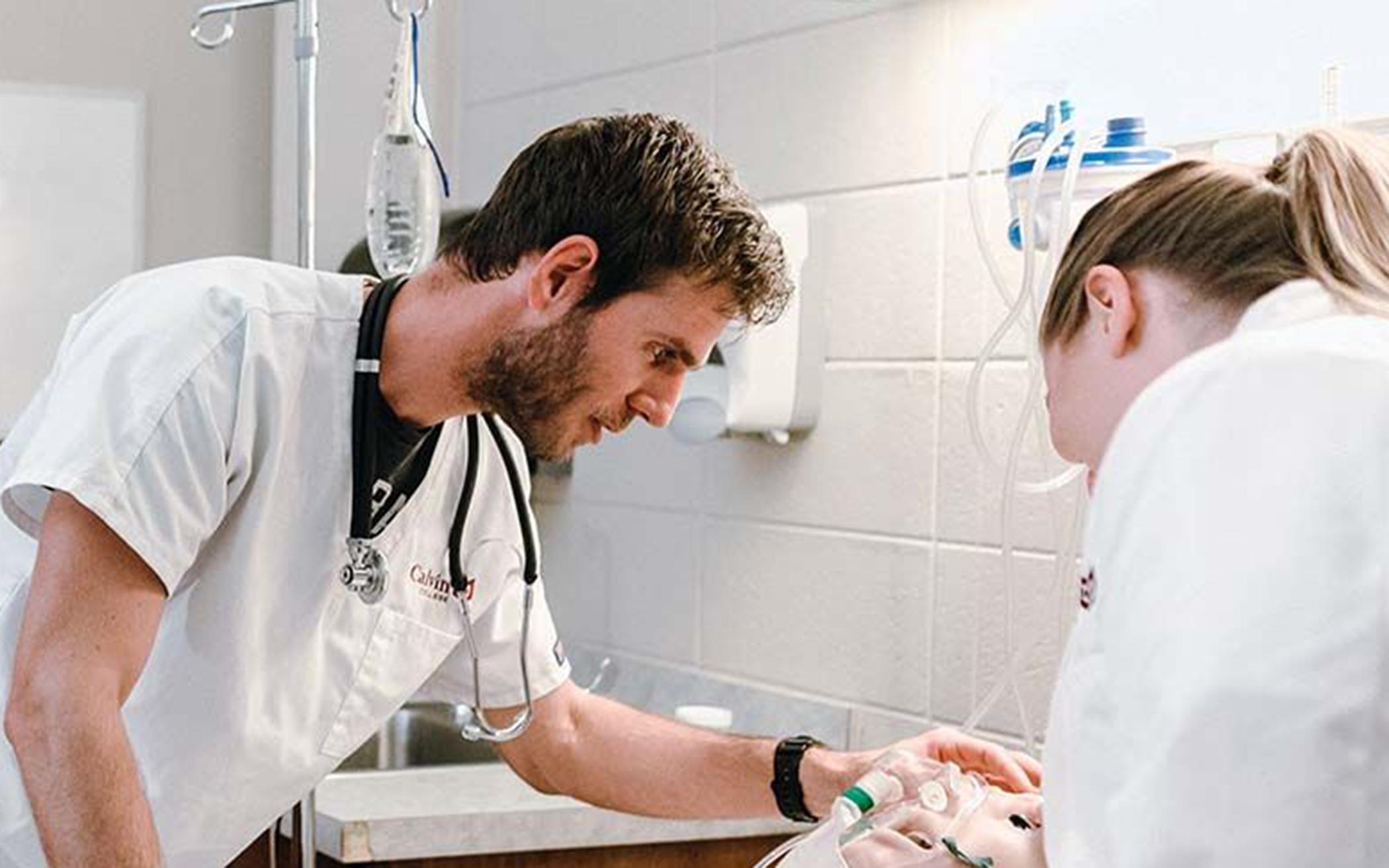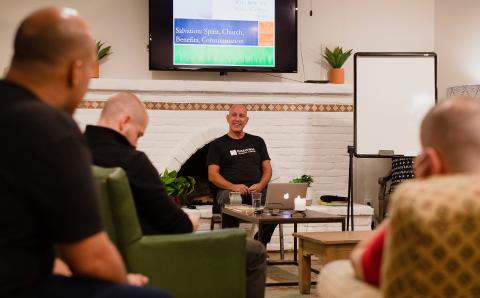Over the next decade, the U.S. Bureau of Labor Statistics projects there will be 193,100 openings for the registered nurse workforce each year. In Canada, a 2019 study forecast a shortage of 117,000 nurses by 2030. And a 2022 report by the International Council of Nurses estimates that 13 million more nurses will be required over the next decade.
“According to the Bureau of Labor Statistics data, this projected employment growth is very fast compared to the 5% average employment growth for all occupations and the 6% growth rate for the entire RN workforce,” said Adejoke Ayoola, dean of the School of Health at Calvin University.
Added to this need, a recent survey conducted by the American Association of Colleges of Nursing revealed that 62% of educational institutions reported they had vacant full-time positions in nursing departments for the 2022-2023 academic year.
“There’s a need for qualified individuals who can take on the role of nurse educators, researchers, leaders, and other nursing-related administrative positions to better nursing education and the field of nursing in general,” said Ayoola.
To address these gaps, Calvin University is introducing the Master of Science in Nursing program, which consists of two tracks: certified nurse educator and certified nurse leader. The program, which is created with working nurses in mind, is flexible and online, with a one-week on-campus health assessment immersive experience in the first year of the program. It is designed to be part time and finished within two years.
“Bettering patient outcomes is the goal,” said Carol Rossman, graduate nursing director at Calvin University. “If you are someone who wants to make changes, views yourself as a leader, sees things on the floors or systems you are working in that could be changed to improve patient outcomes, then this is the program for you.”
“We are equipping people to be an agent of renewal and to think deeply,” said Ayoola. “When preparing nurses, it’s important to think about that preparation from a holistic perspective. How am I delivering care, how am I thinking about the whole person, where they are coming from, where they are going back to. It’s not simply thinking of just the acute setting alone.”
Ayoola says bettering patient outcomes is important, but so too is helping the nurses themselves think about their role in the nursing profession as more than just a job.
“We are preparing nurses at the next level to see what they are doing as part of their vocation,” said Ayoola. “From the Christian perspective, we are helping students understand that if this is what God has called them to do, they’ll want to do it with all their heart. Satisfaction and fulfillment helps build resilience, and so when you are approaching this work with the mindset that this is what God’s called you to do, it’s life-giving.”
*A version of this article first appeared at calvin.edu and was reprinted with permission.
About the Author
Matt Kucinski is media relations manager at Calvin University.









